by Oliver DeMille
Like the 3 words on quality education I shared last week, these 5 additional words can be very helpful to parents, teachers, coaches, mentors and others who work with young people. Have fun with them!
I. Protopia
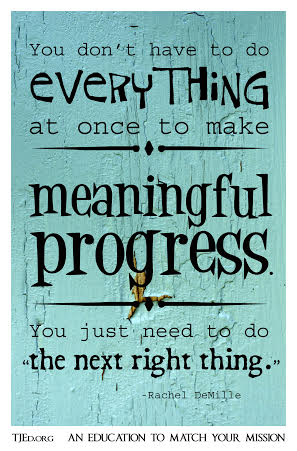 The process of becoming better as time goes on. This is the opposite of “utopia” (where the ideal or the perfect has supposedly already been reached) and also of “dystopia” (where the supposed “ideal” is decidedly not ideal). “Protopia is a state of becoming, rather than a destination…. The ‘pro’ in protopian stems from the notions of process and progress.” (See Kevin Kelly, The Inevitable, 2016, 13)
The process of becoming better as time goes on. This is the opposite of “utopia” (where the ideal or the perfect has supposedly already been reached) and also of “dystopia” (where the supposed “ideal” is decidedly not ideal). “Protopia is a state of becoming, rather than a destination…. The ‘pro’ in protopian stems from the notions of process and progress.” (See Kevin Kelly, The Inevitable, 2016, 13)
The idea of protopia is to focus on today. Make it the best you can. Educationally, this means doing the things today that will help you learn the most effectively. Or, if you are the teacher, parent or mentor, help your student do the same. Forget about yesterday. And don’t waste your learning time planning for tomorrow. Once in a while (weekly works best for most people), sit down and brainstorm ways you can improve your learning—or your student’s learning.
Then, each day, look over your list of ideas, quickly add to them if new ideas or opportunities arise, and decide how to best learn today. Your home, family, learning and life don’t need to be perfect (utopia), and you shouldn’t feel overwhelmed or give up on improvement (dystopia—the disease of frustrated perfectionists). Focus on the now. Today.
How can you (or your students) learn the most, the best ways, today? This is the key.
II. Screening
Screening is the act of learning from the various screens in our lives—smartphones, tablets, smart watches, computers, televisions, electronic billboards, etc. (Ibid., 88-89)
This is actually a warning word. Screening can often distract from experiential learning (really “being present”). It’s one thing to read about Cape Canaveral, or the Jefferson Memorial (apply this to the Parthenon, Pyramids, ocean, etc.), but it’s quite another to be there, to touch the marble, to feel the breeze and look out at the view while the sun beats down and the breeze ruffles your hair. Sometimes learning is much more effective when we are doing something real. Likewise, visiting Valley Forge is great; visiting in the dead of winter is profound. Try walking barefoot for three minutes.
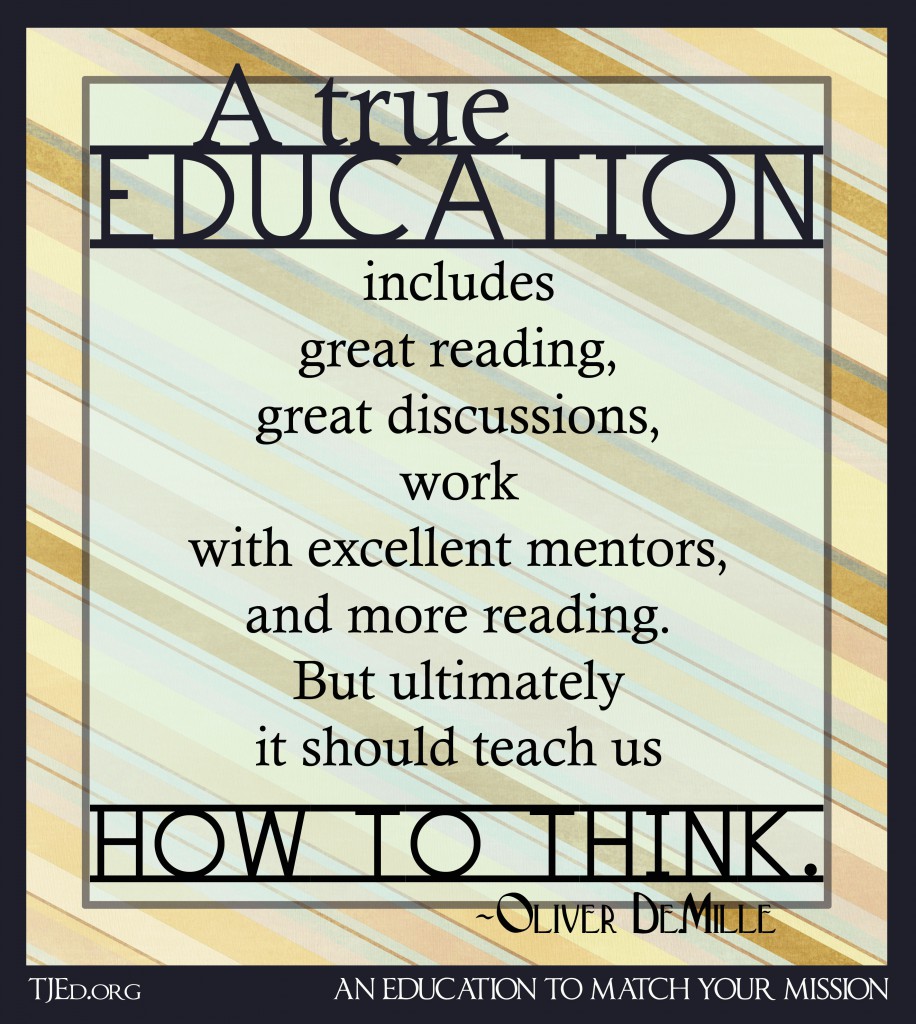 As author Kevin Kelly put it: “I am happy to read a digital PDF of a book, but sometimes it is luxurious to have the same words printed on white cottony paper bound in leather. Feels so good. Gamers enjoy fighting with their friends online but often crave playing with them in the same room. People pay thousands of dollars per ticket to attend an event in person that is also streamed live on the net”, often for free. (Ibid., 71) Sometimes really “being there” makes a big difference.
As author Kevin Kelly put it: “I am happy to read a digital PDF of a book, but sometimes it is luxurious to have the same words printed on white cottony paper bound in leather. Feels so good. Gamers enjoy fighting with their friends online but often crave playing with them in the same room. People pay thousands of dollars per ticket to attend an event in person that is also streamed live on the net”, often for free. (Ibid., 71) Sometimes really “being there” makes a big difference.
In the Digital Age, “experiential” also means reading in a book, looking at art in a museum where the pieces are original and you can see the depth and contours of oils on the canvas, or attending a play or concert in person. These days we get so much of our input from screens that these more tactile experiences heighten our learning.
As Kelly wrote:
“Screen culture is a world of constant flux, of endless sound bites, quick cuts, and half-baked ideas. It is a flow of tweets, headlines, instagrams, casual texts, and floating first impressions. We should properly call this new activity ‘screening’ rather than reading. Screening includes reading words, but also watching words and reading images….
“Neurological studies show that learning to read changes the brain’s circuitry. Instead of skipping around distractedly gathering bits, when you read you are transported, focused, and immersed…. One can spend hours on the web and never encounter this…. [Online, a person] gets fragments, threads, glimpses.” (Ibid., 88-91)
This kind of immersion, or flow, that can occur while reading books is an essential part of quality education—and it seldom happens while screening. It happens even less with mobile screens than on a fixed television or computer station.
Of course, screening is also an essential skill in the Information Age. But people who learn to truly read—closely, analytically, creatively—can access this skill when they’re screening. They hardly ever learn it by screening, however.
For example, even with all the increased activity on electronic devices over the past two decades, “The literacy rate in the U.S. has remained unchanged in the last 20 years…” (Ibid., 89) Still, “those who can read are reading and writing more.” (Ibid.) If you have a quality reading education, screening is a powerful tool. If you don’t, it hardly ever gives you the thinking, reasoning, or creative skills that are needed.
“Book reading [strengthens] our analytical skills…. Screening encourages rapid pattern making, associating one idea with another…” (Ibid., 104) Both are needed to deal with the many new ideas expressed so frequently in our modern world, and to simultaneously be able to effectively discern, think about, and see the ramifications of such ideas. Fast is good. But wise is crucial.
Quality learning involves both real-life experiences and also reading and writing (which require real thinking), that are removed from screens. Both reading and screening are important. But without moving well beyond screens and classrooms, education will tend to be fairly shallow, narrow, and limited.
III. Frictionless Entry
Okay, this is a phrase, not a word, but it’s still important. Frictionless Entry is a technology term, and means “the ability of [people online] to quickly and easily join a platform [like Amazon, eBay, Facebook, PayPal, Kayak, etc.] and begin participating…” (Geoffrey G. Parker, et al., Platform Revolution, 2016, 25) If a given platform doesn’t have frictionless entry, this means it is difficult to engage.
Likewise, wise educators and parents make learning to learn, and loving learning, as frictionless as possible. If you want your kids to read the greatest books, for example, have copies of them in your house—on shelves low enough that the kids can reach them easily. If you really want frictionless entry to great learning, go a step further: read from the great books aloud with your kids, starting from a young age.
Use children-friendly classics at first, and other great age-appropriate books, and build up to the heavier classics over time. Also, set an example by personally reading classics a lot—this makes the act seem natural, simple, and easy. All of this increases “frictionless entry” to great learning.
Montessori taught that a key part of helping young people get a quality education is having the right kind of materials close at hand for each child—and also setting a visible example of reading such books (or engaging such activities – be it mathematical learning, historical research, poetry memorization, public speaking, refining a performance art, etc.) routinely. When parents and other adults provide these two powerful things for children and youth, students naturally embrace learning with more gusto. And it usually lasts.
IV. Curation
Another word widely used in the technology world is “curation,” which occurs when the managers of a website or platform set parameters that everyone must follow. (Ibid., 26-27) For example, Facebook doesn’t allow hate speech, and you can’t buy certain items like firearms on eBay. By setting such rules, the designers of a site establish the culture they want in order to accomplish their goals.
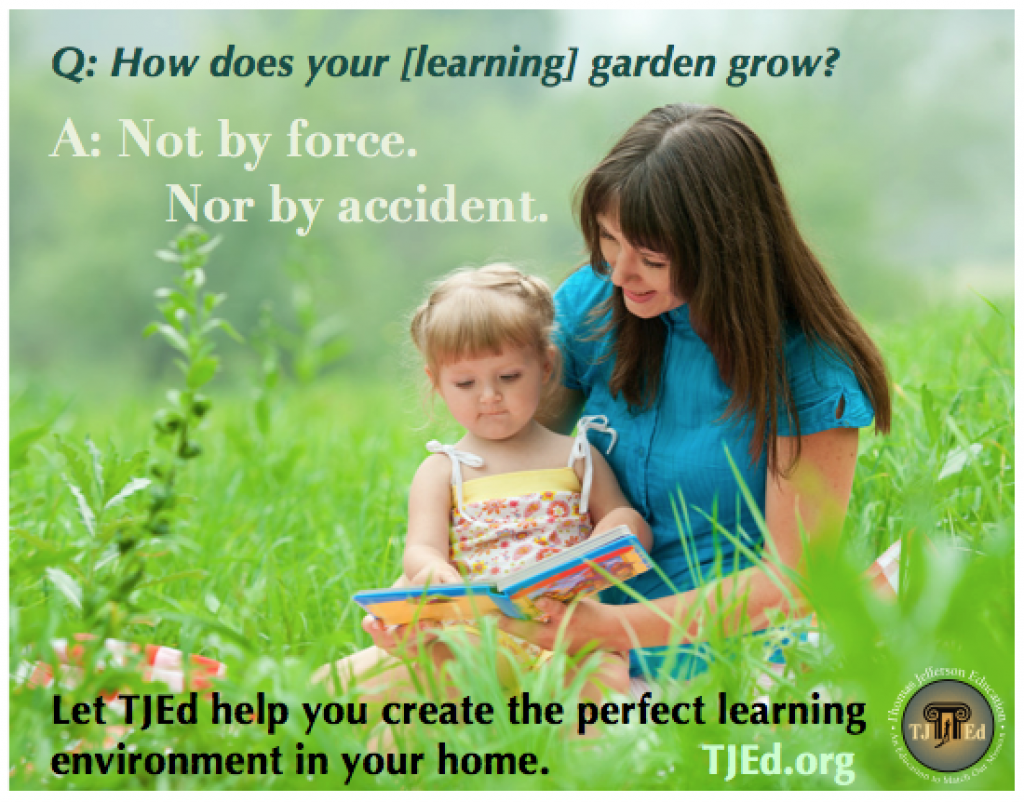 Parents have great power of curation. They can set a curfew, for example, or keep the gaming equipment locked up except on special occasions, or make it “off limits” except on Saturdays and holidays. Another example of curation would be to hold a quick family meeting at the beginning of each morning and have an inspiring quote or song, a prayer or devotion. Then everyone can engage their projects, learning goals and mentor plans, and meet back at 12, or 3, or whatever, to briefly report on what they’ve worked on, discovered, learned, etc.
Parents have great power of curation. They can set a curfew, for example, or keep the gaming equipment locked up except on special occasions, or make it “off limits” except on Saturdays and holidays. Another example of curation would be to hold a quick family meeting at the beginning of each morning and have an inspiring quote or song, a prayer or devotion. Then everyone can engage their projects, learning goals and mentor plans, and meet back at 12, or 3, or whatever, to briefly report on what they’ve worked on, discovered, learned, etc.
This little curation is usually best when kept short. Even five minutes can be great. It sets a powerful tone of learning for the entire day, and children become accustomed to launching right into their learning projects instead of letting distractions, chores, TV, or anything else take over their time.
The act of coming back together to share what’s been learned can be incredibly effective—as long as you keep it brief, fun, and remain mindful of the differing learning and reporting styles of the kids. Having this check-in time can remind the learners why they are doing what they are doing (to learn!), and the simple fact of asking them to summarize their learning later often increases retention. If you find that it’s a stress to one child, rather than a positive motivator, allow him to opt out of giving daily reports—let him just come listen to the others. In such cases, find different curations that are more inspiring for him.
For really great results, take some time brainstorming what kind of curation would help in your home. Don’t announce a bunch of rules at once. Just one or two at a time are usually most effective. Additional curation can be added later. And select curations that fit your family and culture—or what you want it to be—not things you think some expert says “all kids must do.”
Be flexible—if a certain curation doesn’t work, change it. If one turns out to work wonders in your home or school, give it time to really become part of your family or class culture before trying to add more. Giving a little thought to the right curation, and then implementing it, can make a huge educational (and relationship) difference in your home or class.
V. Technium
“The modern system of culture and technology…” (Kelly, 273) This is like “pop culture”, but in the Digital Age our lives are molded as much by social media, smartphones, wearable tech, and soon biotech as by Hollywood, iTunes, or TV. The very fact that we can list iTunes as a “place” to get music, as opposed to Motown (Detroit) or Nashville, illustrates how big Technium has become.
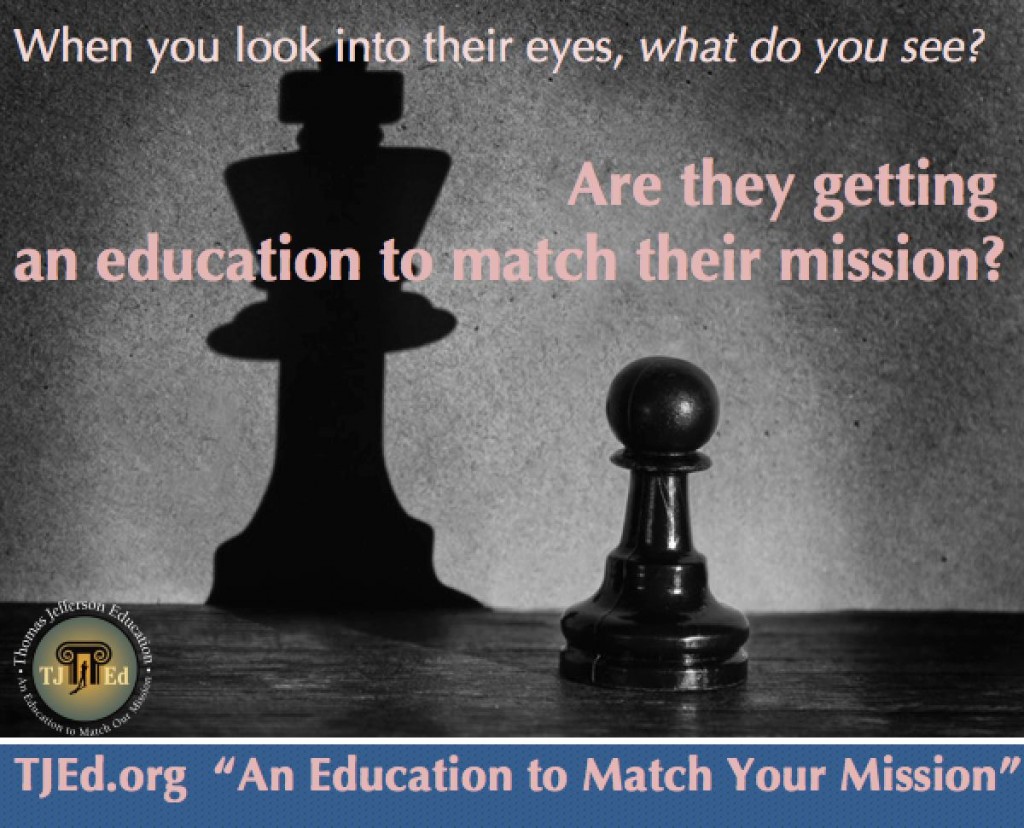 Compare how often people now recommend finding something on Amazon versus the old suggestion to search the library, or getting something at the mall versus Googling it. In the 1970s social commentators worried about television and Hollywood culture having more influence on our youth than parental, school or community role models. Today the worry is about what niche they’ll fall into online—the mean girls?, bullying?, a predator?, the fan-group of a certain recording artist or band (which can be good or bad, depending…)?, ISIS? What happens online doesn’t always stay online.
Compare how often people now recommend finding something on Amazon versus the old suggestion to search the library, or getting something at the mall versus Googling it. In the 1970s social commentators worried about television and Hollywood culture having more influence on our youth than parental, school or community role models. Today the worry is about what niche they’ll fall into online—the mean girls?, bullying?, a predator?, the fan-group of a certain recording artist or band (which can be good or bad, depending…)?, ISIS? What happens online doesn’t always stay online.
There is, of course, much good online, and quality education usually includes at least some technological skills. Wise parents review their kids’ browsing history, chat groups, social sites, and keep track of their interests and passions. They use curation as needed to create guidelines and rules that keep the technium under control for their kids.
For example, some parents we know have blocked all texting or sending of photographs on their teenagers’ devices. The teen can send a photo on mom’s or dad’s phone if he needs to. And some parents have their teen’s phone (including texting) blocked between 10 p.m. and 10 a.m. Others routinely read all their youth’s texts every Saturday.
This isn’t censorship, it’s parenting. It’s also curation. Teens don’t really need frictionless entry to every screen under the sun, all the time. The technium is real, and it can be a dangerous place.
The technium is also a powerful tool and can be used for much good. People who keep up on the latest technology and culture know what’s happening in the world. It’s easy to waste time on this, but it’s not a waste to stay informed and connected in healthy ways.
Conclusion
Finally, the thing about new words (or reviewing words if you already know them) is that they can help us remember core principles of good education, parenting, etc., and implement them. To improve education, try posting these 5 words, along the 3 we introduced last week, somewhere you’ll see them a lot. Like on your bathroom mirror or the hallway to your family room.
Protopia
Screening
Frictionless Entry
Curation
Technium
Autoletic
Eudaimonia
Wuwei
With each new word we learn, our minds are opened to a new body of thought and application. How will these words inform your approach to education in your home, family or classroom?
Like, Share, and Comment below…



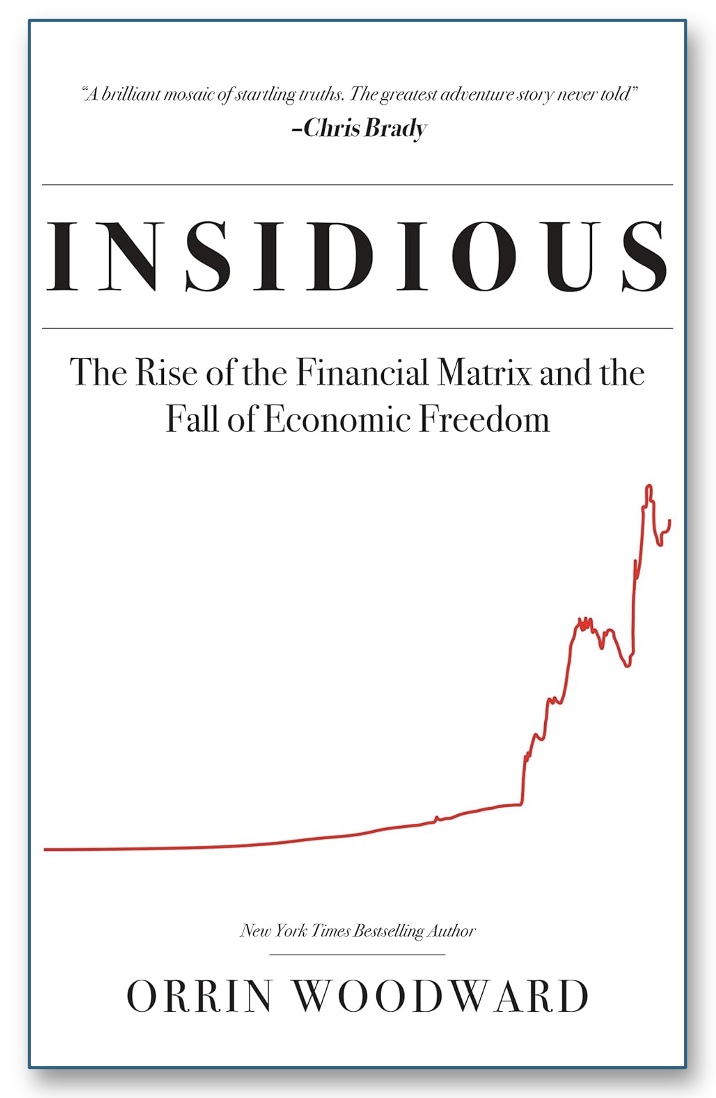
































Leave A Comment